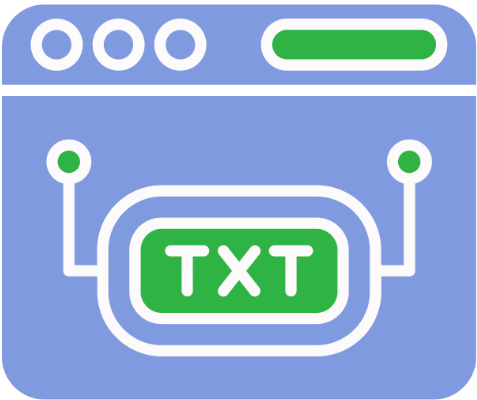Robots.txt Generator
Our Robots.txt Generator simplifies the process of managing how search engines interact with your website. It helps you create a robots.txt file, a simple text file that tells search engines which pages to crawl and which to avoid. You can easily customize these instructions to ensure your website is properly indexed and ranked in search engine results. It's your key to fine-tuning your website's visibility and maximizing its potential online.

How to Use the Robots.txt Generator
Configure Default Settings
Start by configuring your default settings. Decide whether you want all robots to be allowed or if you need to set specific directives like "Allow" or "Crawl-Delay".
Specify Sitemap (Optional)
If you have a sitemap for your website, enter its URL in the provided field. This helps search engines navigate and index your site efficiently.
Customize Search Robots
Tailor settings for individual search engine robots. Determine whether you want them to follow the default settings or adjust them as needed.
Disallow Specific Folders
Identify any folders or directories on your website that you wish to block search engines from accessing. Enter the relative path to these folders in the designated field.
Generate the Robots.txt File
Once you've configured all your preferences, click the "Generate" button. The tool will process your selections and create a customized robots.txt file based on your specifications.
Implementation Instructions
Copy the generated code and paste it into a new text file named "robots.txt". Upload the "robots.txt" file to the root directory of your website to ensure it is accessible to search engine crawlers.
Verify and Test
After implementing the robots.txt file, it's essential to verify its effectiveness. Use tools provided by search engines or third-party services to check if the directives are correctly enforced and if any issues arise.
importance Of Robots.txt
Robots.txt plays a crucial role in managing how search engine crawlers interact with your website. Here's why it's essential:
Control Search Engine Crawling
Can specify which pages of their site should be crawled by search engine bots and which should be excluded.
Optimize Indexing
Important pages are more likely to be indexed and ranked appropriately in (SERPs).
Prevent Duplicate Content
Robots.txt will Help prevent search engines from indexing duplicate or low-value content pages.
Protect Sensitive Information
It will allows website owners to block search engine access Sensitive areas to protect privacy.
Improve Website Performance
Preventing bots from accessing unnecessary pages can help faster loading times .
Ensure Relevance
Crawlers focus on indexing relevant content, enhancing the overall quality of search results.
Frequently Asked Questions

Snapsave
CEO / Co-Founder
Simplify tasks, boost productivity, and succeed online with our intuitive web toolkit. Access easy-to-use tools designed for everyone.

